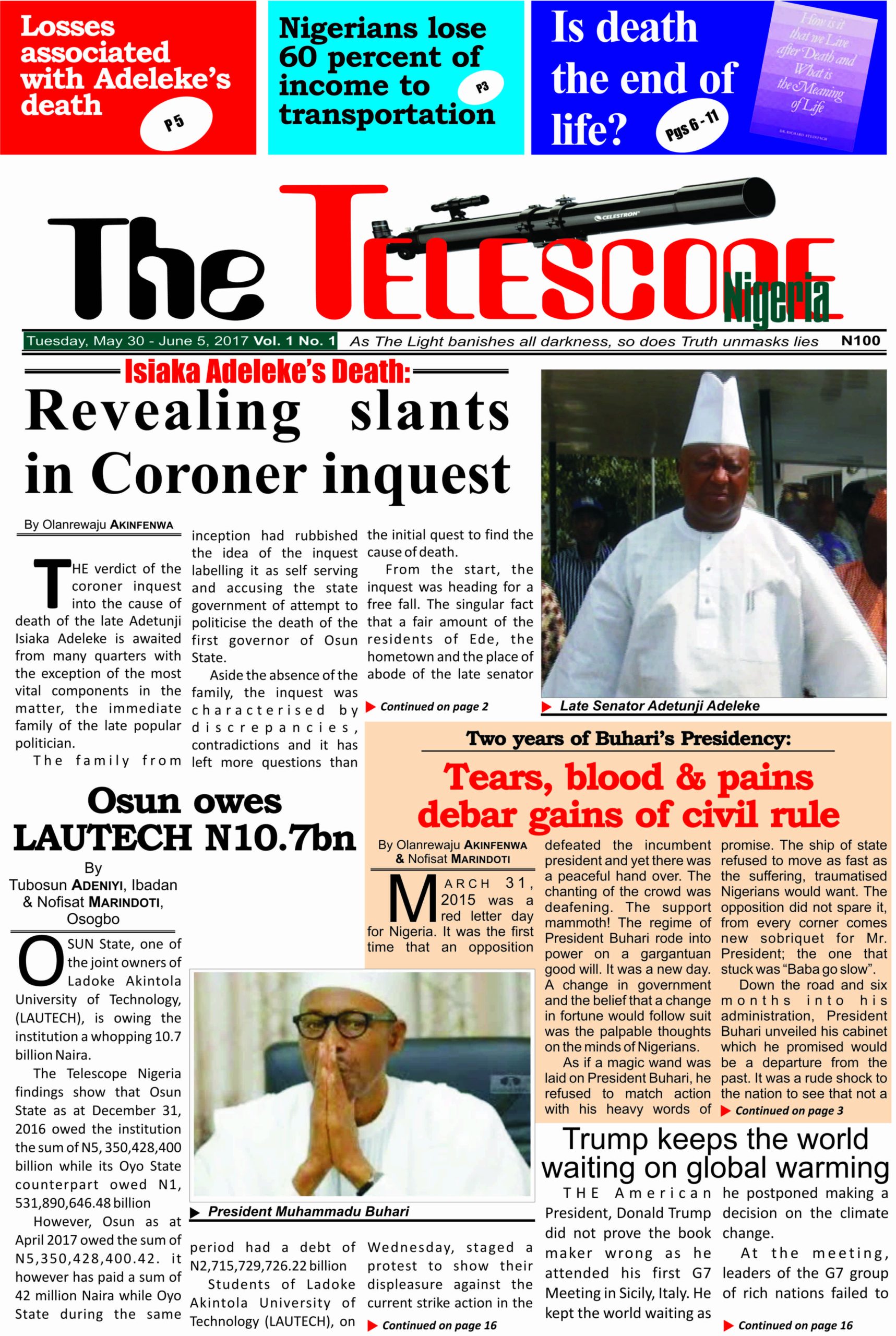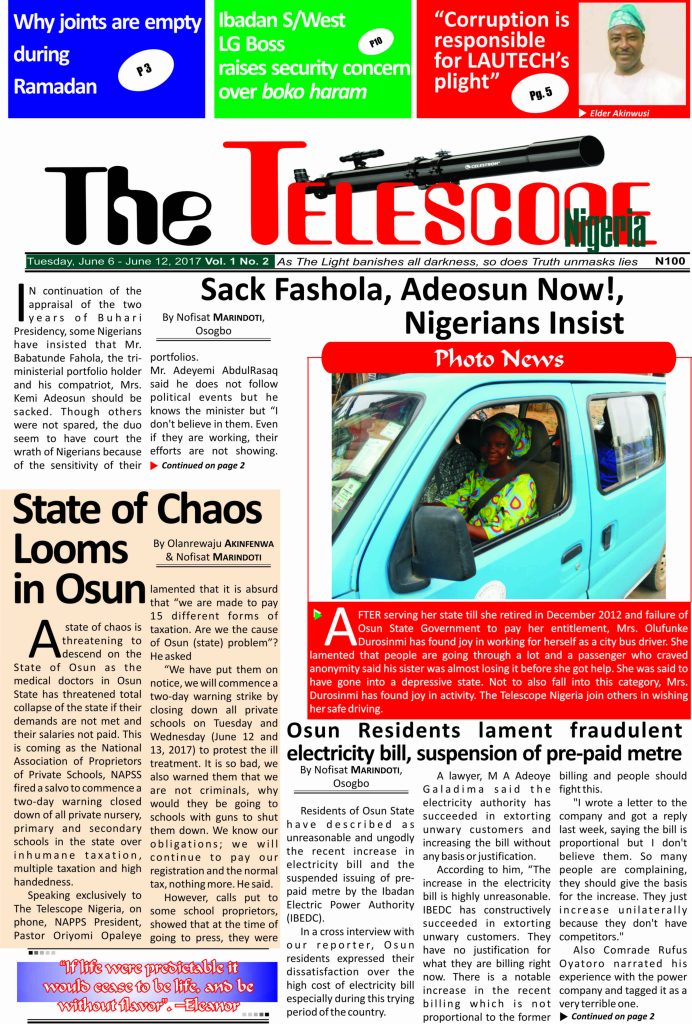As the Light banishes all darkness, so does Truth unmasks lies
The Telescope Nigeria is published in Nigeria and served worldwide online to project News from unbiased viewpoint with analytical points to guide the readers to an informed opinion that will liberate them!

A passion for Truth
We serve you NEWS as they unfold without biases. Our News Analyses open you to myriad views giving you informed opinion that help you shape your thought process to achieve greatness in your life, family life, enterprise and understand policies as they unfold.
NEWS
Uncoloured, unbiased, balanced and reported with the aim of passing it on as it is.
Columns
Experienced columnists that write from experience with analytical minds that put issues in the right perspective
Editorial
Opinon is regarded to be slanted while facts are sacred. However, at The Telescope Nigeria, our Editorial, though our opinion, is fact-based devoid of sentiments.
Our Team
Experienced, ethical individuals who are bound by the Oath of Journalism to uphold the Truth at all times.


“As the Light banishes all darkness, so does Truth unmasks lies”
Olanrewaju Akinfenwa, PhD
CEO/Publisher
Watch, Read, Listen
Join 900+ subscribers
Stay in the loop with everything you need to know.
